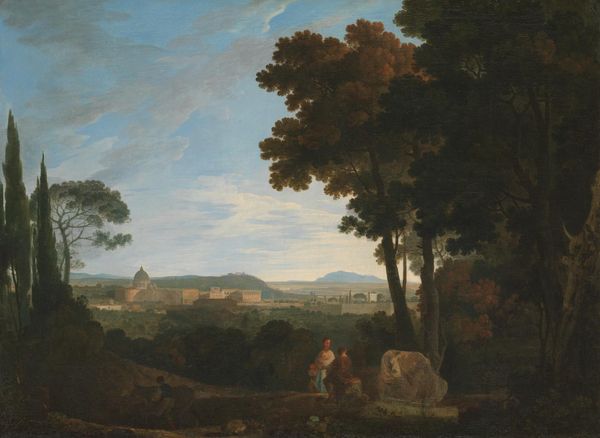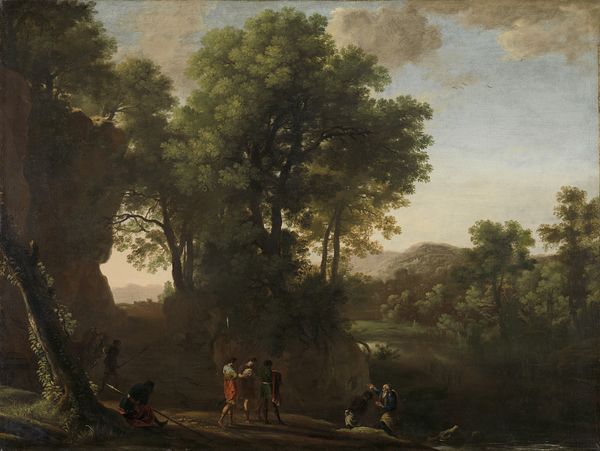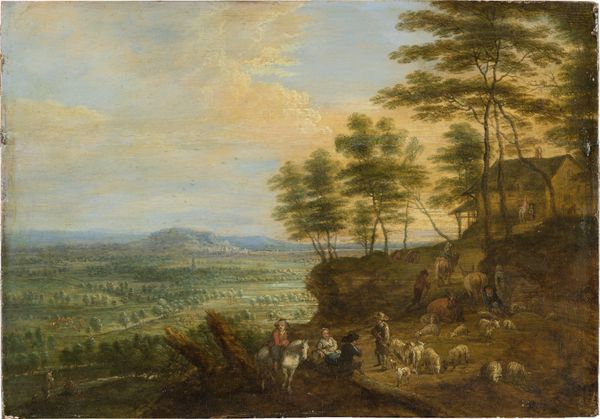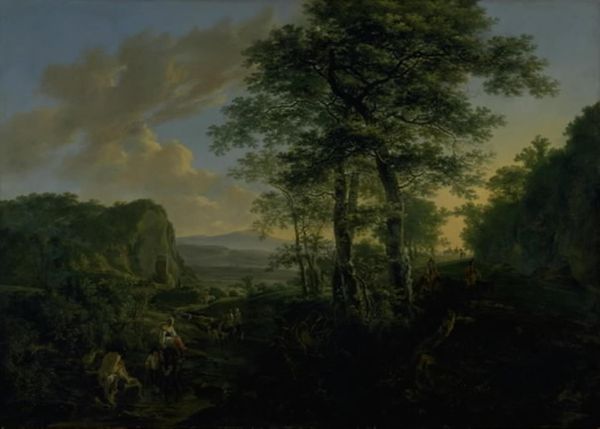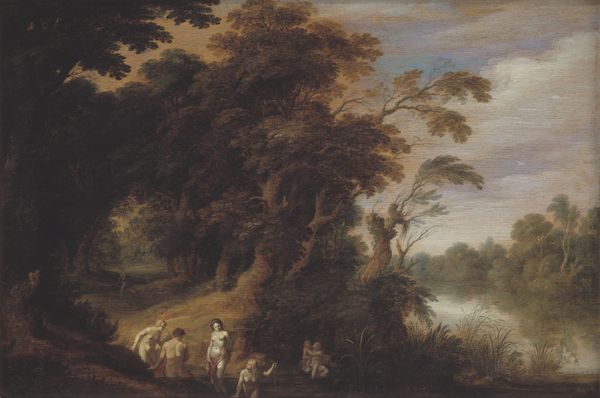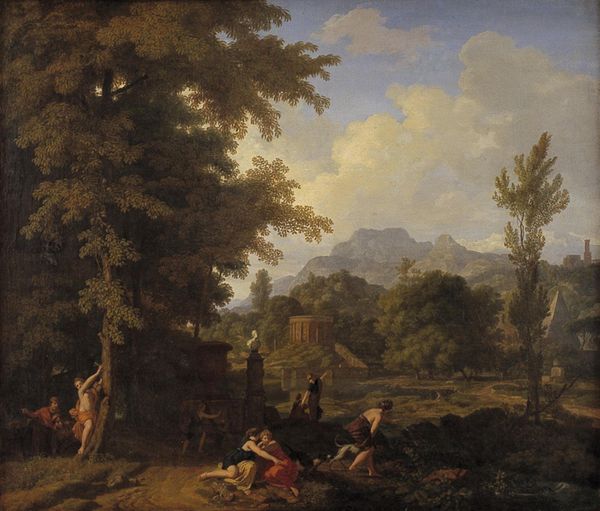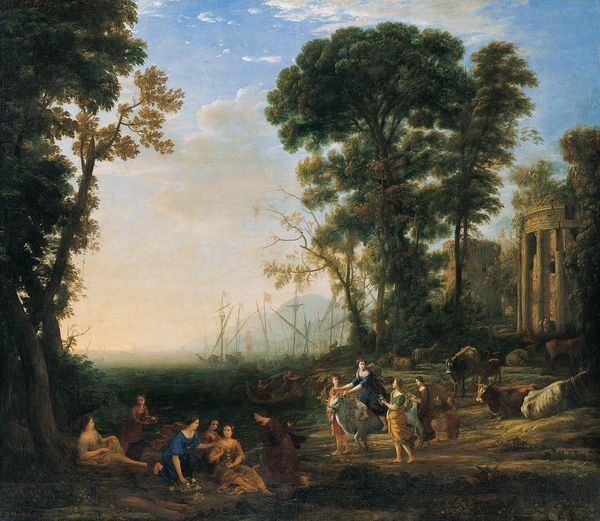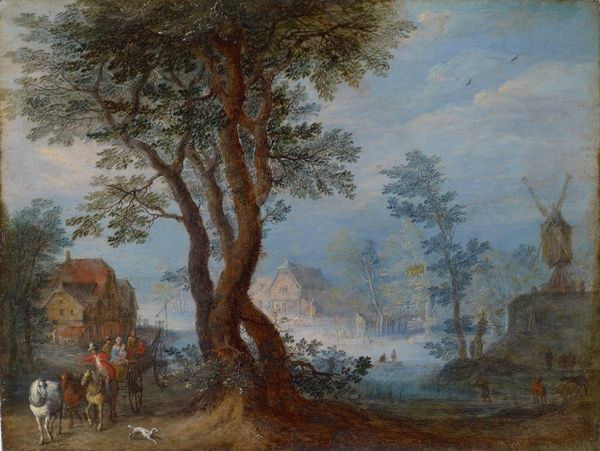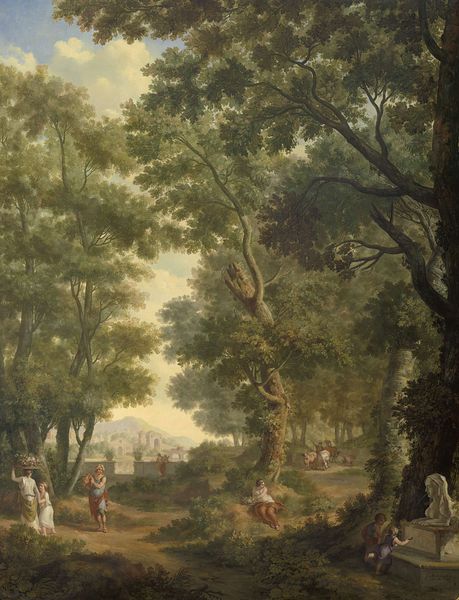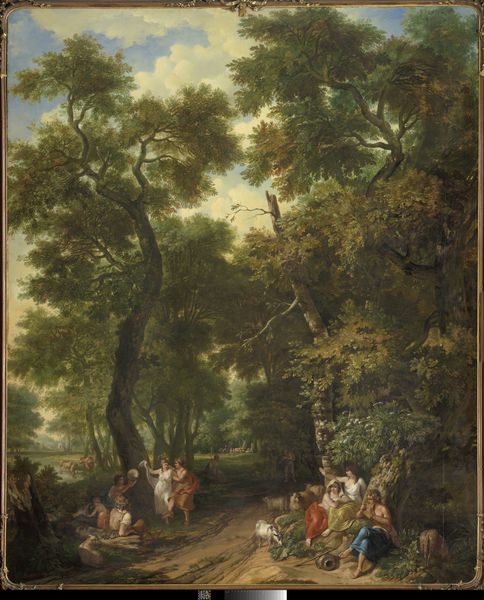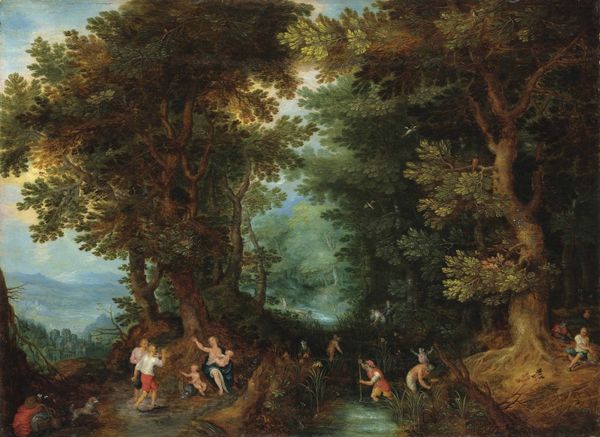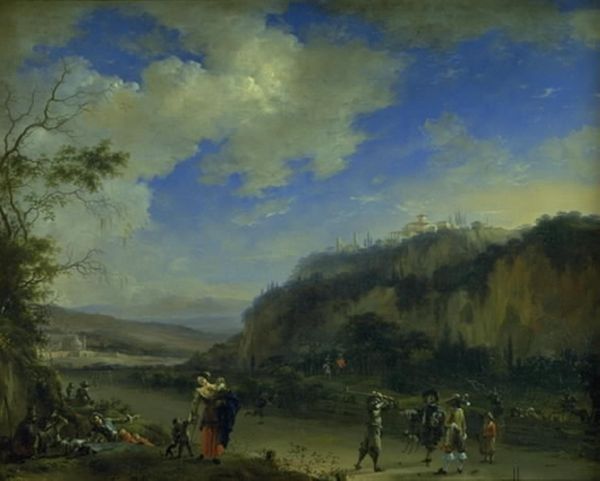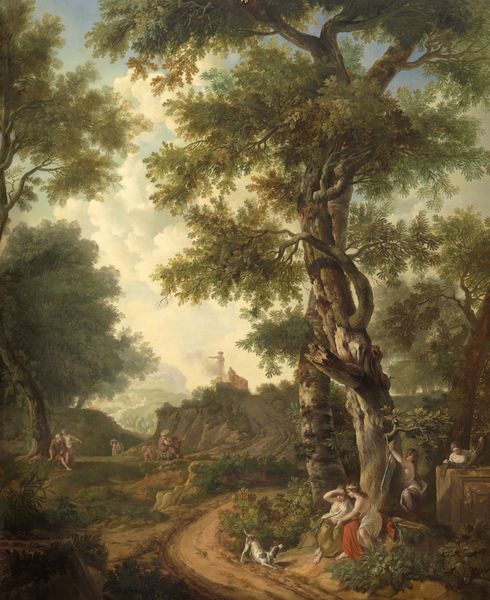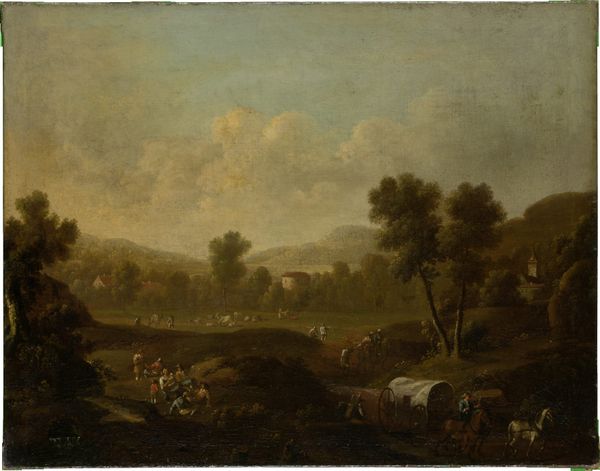
painting, oil-paint
#
baroque
#
painting
#
oil-paint
#
landscape
#
figuration
#
oil painting
#
history-painting
#
academic-art
Dimensions: height 57 cm, width 68 cm
Copyright: Rijks Museum: Open Domain
Curator: Standing before us, we have Jan van Huysum's oil on canvas, "Arcadian Landscape with a Ceremonial Sacrifice," created sometime between 1700 and 1749. Editor: Immediately, the somber mood strikes me. Despite the title's promise of Arcadia, the color palette is dominated by earth tones and dark greens, casting a sense of melancholy over the entire scene. Curator: Van Huysum, typical of academic art, displays meticulous craftsmanship. Observe how the layers of paint create a palpable sense of depth, mimicking the varied textures of the leaves and stone. It must have been a painstaking process to layer these translucent glazes. Editor: And look at the ceremony itself. The ram offered upon the altar—the offering symbolizes atonement, a hope for redemption, perhaps from the burdens suggested by the gloomy landscape? Curator: That sacrifice raises interesting questions. For whom, or for what, is this offering made? It points to a socio-cultural transaction where labor and resources are offered in return for intangible benefits. Editor: Beyond the overt subject, I think there’s a commentary on classical ideals, even. The crumbling architecture scattered in the background reminds us of the transience of even the grandest civilizations, and this relates to the broader symbolism. The painting seems to convey themes of mortality and temporality, and to think all this expressed in this image through carefully orchestrated visuals. Curator: Right. While the narrative itself stays somewhat enigmatic, his composition, the physical act of applying pigment to canvas, clearly communicates. The artist makes deliberate choices to direct the viewer's attention, prompting reflection on themes beyond surface aesthetics. The consumption of color, the texture of canvas: this, too, represents a transaction of wealth and culture. Editor: These layers invite endless readings. I'm now curious as to the artist's motivations and intended meanings; this really provides ample food for thought. Curator: Precisely. Investigating these nuances brings one face-to-face with how this period viewed, constructed, and, importantly, materially traded ideas of virtue and value.
Comments
rijksmuseum over 2 years ago
⋮
These two scenes are painted on copper, a support that allowed Van Huysum to achieve a remarkably smooth and shiny result. Depicted are Arcadian, or idyllic, landscapes, with temples and figures from Classical antiquity. They are small gems intended for an art lover’s collection.
Join the conversation
Join millions of artists and users on Artera today and experience the ultimate creative platform.
